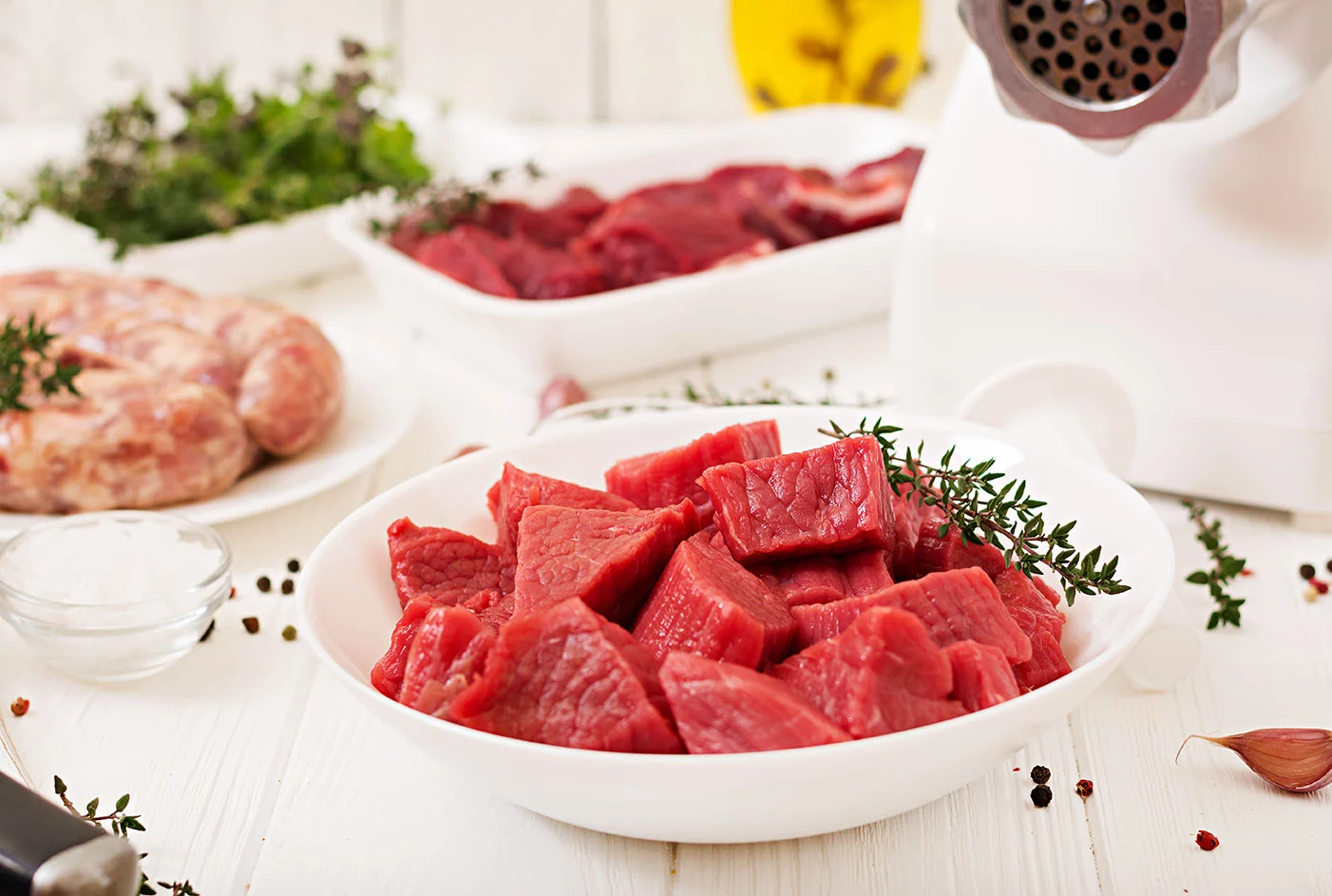
Will eating beef and red meat cause heart attack or stroke? Do a test and you will know immediately whether you can eat beef
Eating red meat such as beef can easily lead to myocardial infarction and stroke, but beef is also the best blood-replenishing meat with a high iron content. "Is beef suitable for me?" A start-up company spun off from the National Taiwan University Hospital and developed a personalized test called "Can I eat beef?" which was developed by Wu Mingxian, the director of the National Taiwan University Hospital. Through a blood test, it can be determined whether there are "bad heart bacteria", allowing people to quickly understand whether they are at risk of cardiovascular disease and whether they can eat beef.

Red meat is more likely to cause cardiovascular disease and is actually related to intestinal bad heart bacteria
Why do some people remain healthy after eating lots of steak, while others do not eat meat often but have clogged blood vessels? Professor Xu Chengzhi, founder of the National Taiwan University Hospital's derivative innovation company, said that in recent years, the medical community has discovered that many diseases are related to intestinal bacteria, even cardiovascular disease is closely related to intestinal bacteria. Many people in Taiwan do not eat beef for reasons such as "eating beef will bring bad luck", while many studies abroad believe that the reason for not eating beef and other red meat is that "red meat can easily cause cardiovascular disease", and one of the reasons has been found to be related to intestinal bacteria.
He explained that it was known in the past that red meat was bad for the cardiovascular system, but what was the reason? Current research has revealed that the reason why red meat is bad for cardiovascular health is that it is caused by bad intestinal bacteria, also known as anaerobic intestinal bacteria, which are also known as "bad heart bacteria."
Xu Chengzhi said that studies have found that if too much red meat is consumed, the undigested carnitine and choline in the red meat will have the opportunity to be used and metabolized by the intestinal bacteria of the human body, producing smelly and volatile trimethylamine (TMA) in the intestinal cavity.
Trimethylamine can be directly absorbed by the intestines, enter the liver through the portal vein, and be acted upon by flavin monooxygenase (FMO3) to form trimethylamine oxide (TMAO) and enter the blood circulation. Long-term high concentrations of trimethylamine oxide in the blood have been shown to promote macrophage accumulation on blood vessel walls, inhibit cholesterol recycling, and enhance platelet aggregation, leading to the formation of atherosclerosis and vascular embolism, thereby increasing the risk of myocardial infarction and stroke.
Nearly 50% of patients with heart failure who have high TMAO concentrations will not survive more than 5 years!
Xu Chengzhi said that many human studies have also confirmed that the concentration of trimethylamine oxide in the blood is an independent prognostic factor for cardiovascular events. The Cleveland Clinic Cardiovascular Medicine Center in the United States found in a test of 4,000 people that those with high TMAO levels were more likely to experience a major cardiovascular event (MACE) three years later. The results were published in the New England Journal of Medicine.
In addition, if a person already has heart failure or chronic kidney disease and has high TMAO, his or her 5-year survival rate is less than 60%. If a person already has type 2 diabetes and has high TMAO, the three-year survival rate is about 70%. In addition, in a blood test of 500 people in cooperation with the National Taiwan University Hospital, it was found that the TMAO concentration in the blood of people with cardiovascular disease in Taiwan was highly significant compared with those without cardiovascular disease.
Meat eaters produce 10 times more TMAO than vegetarians
What should I do if my TMAO level is found to be too high? Professor Xu Chengzhi said that being a vegetarian is actually the best way to prevent cardiovascular disease! According to a research project jointly conducted by Wu Mingxian and Professor Shen Liyan from the Institute of Food Science and Technology at National Taiwan University, tests were conducted on meat eaters and vegetarians. The results showed that after meat eaters ingested carnitine and choline, the amount of TMAO produced in their bodies was 10 times that of vegetarians, indicating that the intestinal flora of meat eaters has gradually tended to increase the type of bad bacteria that produces trimethylamine (TMA).
Eat more dietary fiber, probiotics, grapes, turmeric, etc.
Since it is difficult for many people to change their eating habits, Xu Chengzhi suggests that they can start by eating more dietary fiber, supplementing with probiotics, or eating foods that are beneficial for regulating intestinal bacteria and reducing TMAO in the body, such as grapes, coptis root, garlic, turmeric, tomatoes, etc. In addition, he also suggested that people with a history of cardiovascular disease or those who often eat red meat, have an unbalanced diet, experience dizziness, or have a rapid or irregular heartbeat should test their TMAO levels.
Currently, the methods for detecting TMAO in the body include testing in the blood and urine, with blood testing being the most commonly used method. Since current blood testing for TMAO must use a mass spectrometer, which has a high cost of consumables, the entire set of tests costs nearly 10,000 yuan.
Reprinted from: Health 2.0
Original URL: https://health.tvbs.com.tw/medical/343684
Consulting expert: Xu Chengzhi, CEO of Leeuwenhoek Biotech Co., Ltd.



